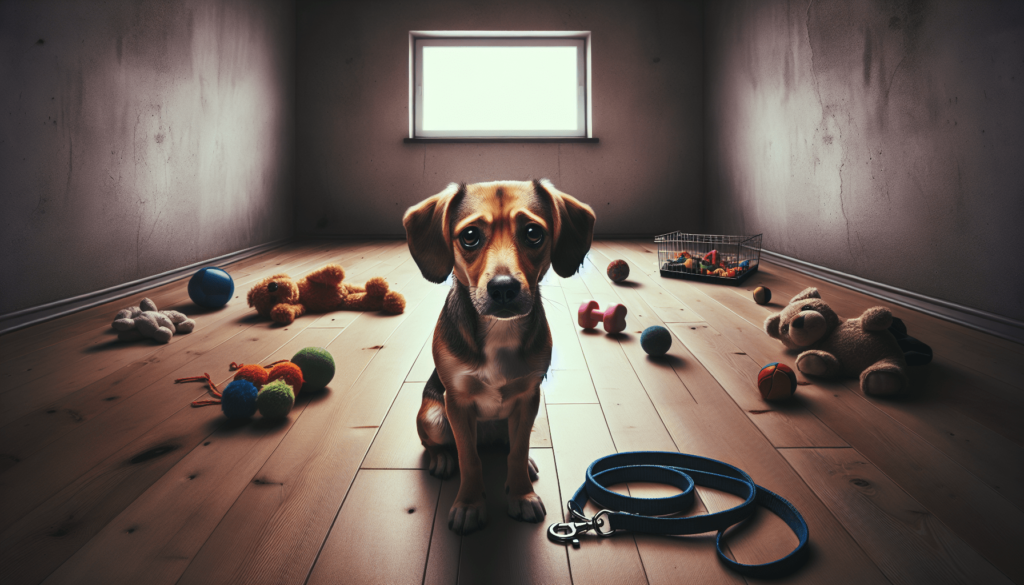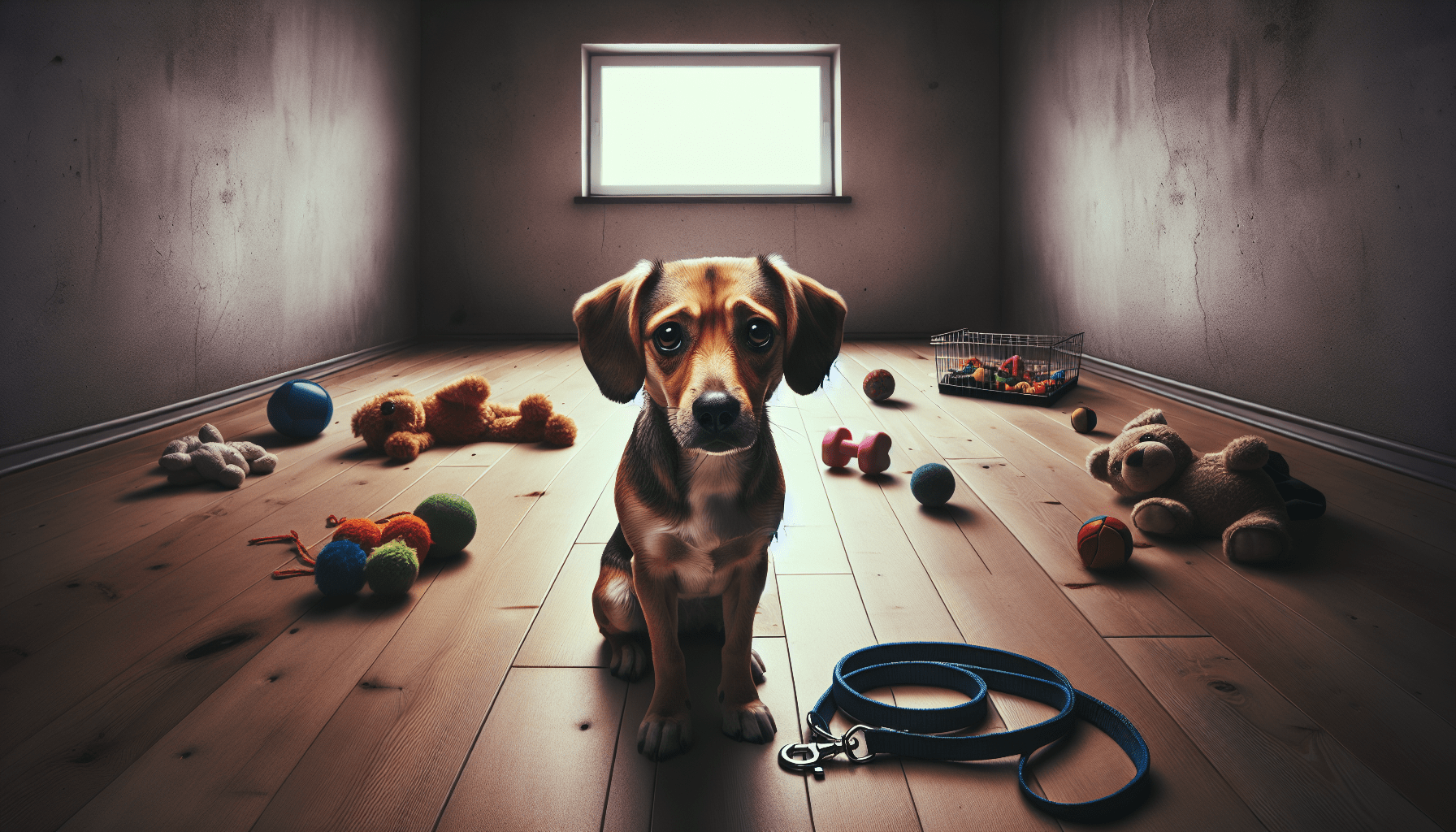Hello there! Have you ever thought about how divorce can affect our beloved furry friends at home? In this article, we will explore the emotional and physical impact of divorce on family pets. From changes in routine to feelings of abandonment, our pets can often be overlooked during such a challenging time. Let’s dive in and understand how we can support and care for our pets during divorce. Have you ever wondered how divorce affects your furry family members? Pets are a significant part of many households, and their well-being during times of family change is crucial. In this article, we’ll explore the impact of divorce on family pets and provide tips on how to help them through this challenging time.

Understanding the Emotional Impact on Pets
Divorce can be a stressful and emotional time for all family members, including pets. Animals are highly sensitive to changes in their environment and can pick up on the tension and emotions of those around them. As a pet owner, it’s essential to recognize the potential impact divorce can have on your furry companions.
Pets may exhibit signs of stress, anxiety, and behavioral changes during a divorce. They may become withdrawn, act out, or show signs of depression. Some pets may even develop health issues due to the emotional turmoil they are experiencing. It’s crucial to pay attention to your pet’s behavior and provide them with comfort and support during this challenging time.
Signs of Stress in Pets
It’s essential to know the signs of stress in pets so you can address them promptly. Some common signs of stress in animals include:
- Excessive barking or meowing
- Aggressive behavior
- Changes in appetite or sleeping patterns
- Hiding or avoiding interaction
- Destructive behavior
- Excessive grooming or scratching
If you notice any of these signs in your pet, it’s essential to consult with a veterinarian to rule out any underlying health issues. Providing your pet with a safe and stable environment during the divorce process can help alleviate their stress and anxiety.
Creating a Stable Environment for Your Pet
During a divorce, maintaining a stable environment for your pet is essential. Pets thrive on routine, consistency, and structure, so it’s crucial to provide them with stability during this time of change. Here are some tips for creating a stable environment for your furry family member:
Stick to a Routine
Keep your pet’s feeding, exercise, and playtime routines consistent to provide them with a sense of normalcy. Try to stick to the same schedule as much as possible, as this can help reduce your pet’s stress and anxiety.
Provide Comfort and Reassurance
Pets may feel confused and scared during a divorce, so it’s essential to provide them with comfort and reassurance. Spend quality time with your pet, cuddle with them, and engage in activities that they enjoy. Physical affection and attention can help your pet feel safe and secure during this challenging time.
Create a Safe Space
Create a designated safe space for your pet where they can retreat and feel secure. This can be a cozy bed, a quiet corner, or a favorite blanket. Make sure this area is free from any loud noises or disruptions, so your pet can relax and unwind.
Limit Exposure to Conflict
Pets can pick up on tension and conflict in the household, so it’s essential to limit their exposure to arguments or disagreements. Try to keep interactions calm and positive around your pet, as this can help reduce their stress levels.
Co-Parenting Your Pet After Divorce
If you and your ex-spouse shared custody of your pet, it’s essential to establish a co-parenting plan that prioritizes the well-being of your furry family member. Co-parenting your pet after a divorce can be challenging, but with open communication and cooperation, you can ensure that your pet receives the care and attention they need.
Establish a Co-Parenting Schedule
Work with your ex-spouse to establish a co-parenting schedule that allows for consistent care and routine for your pet. Consider your pet’s needs, preferences, and routines when creating a schedule that works for both parties.
Communicate Effectively
Open and honest communication with your ex-spouse is essential when co-parenting your pet. Keep each other informed about your pet’s health, behavior, and any changes in their routine. Regular communication can help ensure that your pet’s well-being is a top priority.
Be Flexible and Understanding
Flexibility is key when co-parenting your pet after a divorce. Be willing to accommodate each other’s schedules and last-minute changes to ensure that your pet’s needs are met. Understanding and empathy towards your ex-spouse can help make the co-parenting process smoother and more harmonious.
Focus on What’s Best for Your Pet
Ultimately, the well-being and happiness of your pet should be the focus when co-parenting after a divorce. Put aside any personal differences or conflicts for the sake of your pet and work together to provide them with a loving and stable environment.
Seeking Support for Your Pet
If you’re struggling to help your pet cope with the impact of divorce, don’t hesitate to seek support from a professional. A veterinarian, animal behaviorist, or pet therapist can provide guidance and resources to help your pet through this challenging time.
Consulting with a Veterinarian
If your pet is displaying signs of stress or behavioral changes, it’s essential to consult with a veterinarian. A vet can assess your pet’s health and offer recommendations for managing their stress and anxiety. They may also recommend behavioral training, medication, or other interventions to help your pet cope with the impact of divorce.
Working with an Animal Behaviorist
An animal behaviorist specializes in understanding and modifying pet behavior. If your pet is struggling to adjust to the changes brought on by divorce, an animal behaviorist can provide insight into your pet’s needs and behavior. They can offer strategies and techniques to help your pet navigate this challenging time.
Pet Therapy
Pet therapy, also known as animal-assisted therapy, can be beneficial for pets coping with stress and anxiety. Therapy animals can provide comfort, support, and companionship to pets in need. Consider enrolling your pet in a pet therapy program to help them feel more secure and at ease during the divorce process.

Moving Forward with Your Pet
As you navigate the challenges of divorce, it’s essential to remember that your pet is a valued member of your family. By prioritizing their well-being, providing them with comfort and support, and creating a stable environment, you can help your pet adjust to the changes in their life.
Remember to communicate openly with your ex-spouse, seek professional support when needed, and focus on what’s best for your pet. With patience, empathy, and understanding, you can help your furry family member thrive during this challenging time.

